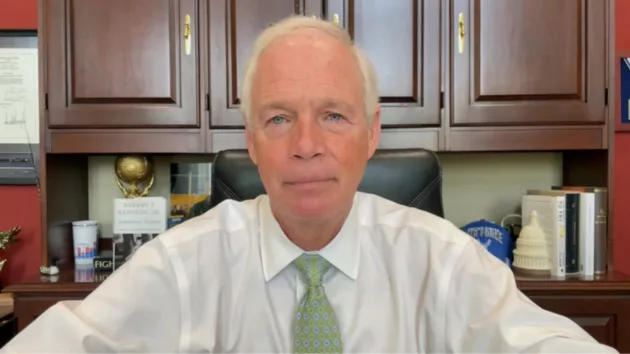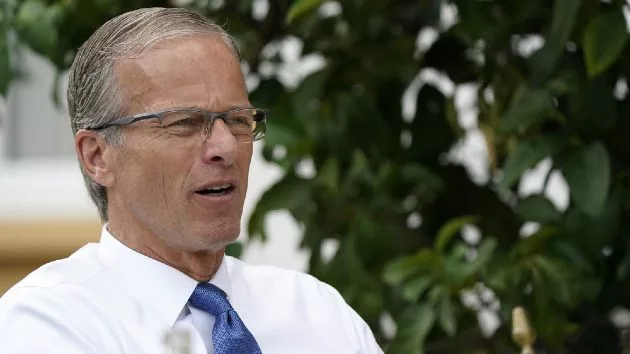(WASHINGTON) — A key Republican senator is pushing back against President Donald Trump’s major spending bill, warning that it would add trillions to the nation’s debt.
On Wednesday, Sen. Ron Johnson of Wisconsin told ABC News he cannot support what Trump calls his “One Big Beautiful Bill Act,” despite pressure from the White House to pass it by July 4.
“I refuse to accept $2 trillion-plus deficits as far as the eye can see as the new normal,” Johnson said. “We have to address that problem, and, unfortunately, this bill doesn’t do so.”
The Congressional Budget Office (CBO) said the bill would add $2.4 trillion to the deficit. While Office of Management and Budget Director Russell Vought claimed there are “massive levels of savings in this bill,” Johnson disagreed.
“We went from $4.4 trillion in spending in 2019 to over $7 trillion this year,” he said, adding that the slight reduction proposed in the bill is “barely a rounding error in this massive spending.”
The senator told ABC News he isn’t worried about political fallout from opposing Trump’s bill.
“I’m worried about our kids and grandkids, the fact that we’re mortgaging their future. It is wrong. It’s immoral,” Johnson said.
Instead of one large bill, Johnson wants to split it into two smaller pieces. His plan would first deal with matters like border security, defense and extending current tax laws. Then, he wants Congress to take time to carefully review government spending and find ways to cut waste.
On possible criticism from Trump, Johnson said he had a “very cordial conversation” with the president about his concerns.
“I want to see President Trump succeed. I’m a big supporter,” Johnson said, but he added that fixing the budget “is going to take time.”
The bill also faces criticism over its impact on healthcare, with CBO estimates showing around 11 million people could lose health insurance coverage.
As the July 4 deadline approaches, Johnson remained firm in his position.
“You have to do the things we agree on,” he said, listing border security, defense and extending current tax law as priorities. “Then come back, do the hard work of forensically auditing spending on these programs, and get serious about reducing that deficit trajectory, bending it down, rather than having it skyrocket upward.”
Copyright © 2025, ABC Audio. All rights reserved.






